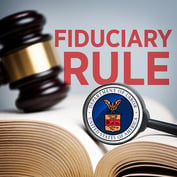Individual retirement account rollover contributions are forecasted to increase at a compounded annual growth rate of 5.5 percent over the next five years, reaching nearly $470 billion in 2018, according to a new report.
Cerulli Associates published this finding in “Evolution of the Retirement Investor 2013: Influencing and Addressing Retirement Savings.” The study analyzes the decisions individual investors make regarding retirement savings, rollovers and retirement income.
The report attributes the expected rise in rollover contributions primarily to increased distributions from defined contribution (DC) plans as retirees withdraw accumulated balances in these plans. The report adds that $600 billion of assets eligible for distribution from DC plans remained in-plan in 2012. The amount includes assets eligible from prior years that still remained in-plan.








 November 20, 2013 at 10:56 AM
November 20, 2013 at 10:56 AM










